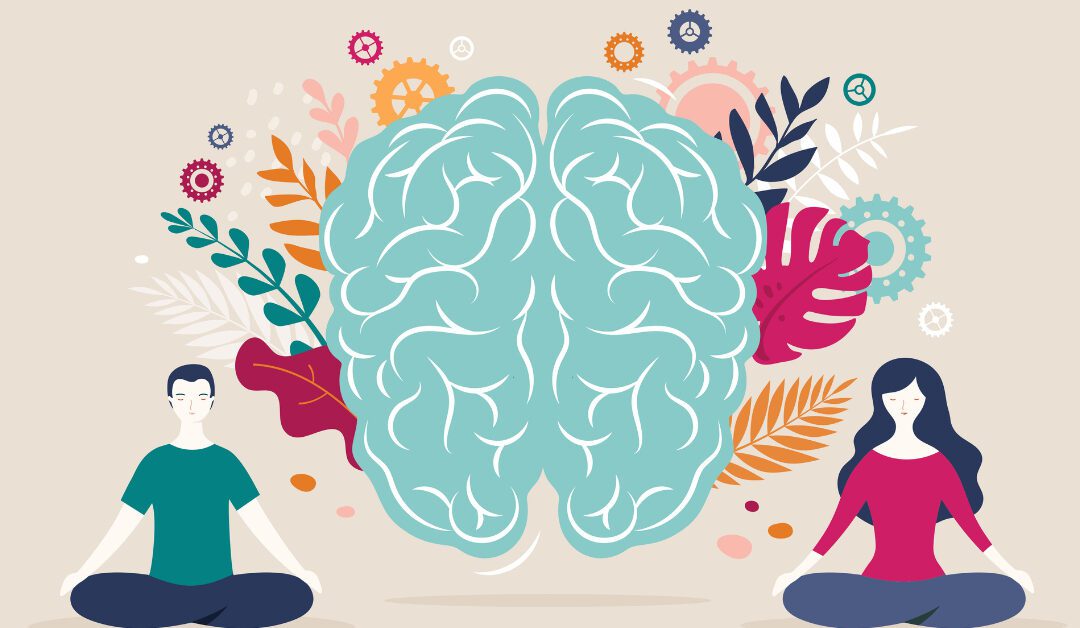Throughout history, groups, cultures, religions, and spiritual traditions, worldwide, have looked to breathwork and the use of psychedelic plant medicines to heal, grow, and transform the human experience. In this article, we look at the sacredness of the breath, and recent scientific studies that help us further understand the impact of breathing with Mindfulness Based Interventions (MBIs), combined with psychedelics.
Breathwork is a powerful tool to alter the neurology and psychology of human beings. It helps to regulate and balance the nervous system. When combined with plant medicine the breath can deeply alter, direct, and focus the mind to reset and change perceptions.
The root word for breath in Latin is “Spir”— as in aspire, conspire, expire, inspire, perspire, respiration, respire, spiracle, spirit, transpire, etc. So, it’s easy to see why the breath has taken center stage historically in religious and spiritual ceremonies that use chants, prayers, music, ecstatic dance, and symbolism to transcend dogma.
Modern-day research has confirmed what sages have known for centuries. Sacred plant medicines and breathwork can help individuals reset, reboot, and reframe traumatic events and connect them with divine intention. We know trauma challenges, inhibits, and triggers hyperarousal or hypoarousal modes and can dysregulate the autonomic nervous system. A recent study published in the Journal of Psychopharmacology shows that psychedelics and mindfulness-based interventions, and breathwork, practiced together could be the future of mental health treatment. [1]

Researchers at Johns Hopkins University conducted[2] both psilocybin and MBI practices. These studies had a combined positive effect on participants who had chronic post-traumatic stress disorder (PTSD). The results of the study are promising and suggest that the combined use can further help people suffering from PTSD. Furthermore, the use of psychedelics in combination with MBIs could be an especially powerful tool to address both the cognitive and emotional aspects of mental illness. The synergistic effect offers both deep personal insights and improved self-regulation to help people recover from mental illness and live happier healthier lives.
MBIs and psychedelics have been shown to affect key aspects of mental health, such as depression, anxiety, and addiction. For example, a recent meta-analysis of 47 clinical trials found that mindfulness meditation is an effective treatment for reducing symptoms of anxiety[3] (Creswell et al., 2017). Similarly, multiple studies have shown that psychedelic drugs are effective in treating a variety of mental health disorders such as depression[4] (Carhart-Harris et al., 2016), anxiety[5] (Grob et al., 2011), and addiction[6] (Mithoefer et al., 2011).
Given the promising evidence for both MBIs and psychedelic drugs in the treatment of mental health disorders, it is not surprising that there is growing interest in combining these two approaches. One early study found that a single session of psilocybin-assisted coaching and MBIs were associated with reductions in depression and anxiety, as well as increases in self-compassion and mindfulness[7] (Davis et al., 2016). These findings suggest that the combination of psychedelics and MBIs has the potential to powerfully treat mental health disorders.

MBIs and psychedelics help to “reset” the brain’s Default Mode Network (DMN), the self-referential side of the brain, which is active during passive rest and mind-wandering, by helping to throttle its activity. A beneficial outcome for people with mental disorders characterized by impaired DMN function. For example, PTSD is associated with reduced activity in the DMN, and psilocybin can increase activity in the DMN in people with PTSD. This suggests that psychedelics could be used to treat a wide range of mental disorders characterized by impaired DMN function. In addition to PTSD, these disorders include depression, anxiety, and addiction. When combined with focused MBIs, individuals can throttle arousal and better regulate.
These studies confirm and lift earlier research done by psychiatrist Stanislav Grof, with his LSD experimentation which focused on healing patients through altered states of consciousness using breathwork. Grof’s research into consciousness and healing is still at the heart of modern-day breathwork.
Using an altered state technique called holotropic breathing, patients could self-regulate and achieve altered states of perception without psychedelics, drugs, or medicine. Indigenous, ancient wisdom cultures have seen the power of deep breathing, which scientifically regulates the autonomic nervous system. We humans naturally breathe. It’s a part of our autonomic, sympathetic, nervous system, which helps to regulate our bodies. We don’t need to think about it. But, when practiced with intention and focus, breathing takes on another role, as the mind is directed to regulate and manage stress levels, as well as recognize, accept, investigate, inquire, and nurture altered states of consciousness for longer periods of time.
MBIs and somatic practices used with psilocybin have effectively treated many individuals with depression. The complementary effects of these treatments are certainly an exciting prospect for future research on this topic.
Authors note: Breathing is a powerful way to change your brain chemistry when used in conjunction with psychedelics. But, you must consider intention, set, setting, and integration when practicing. Seek out help and support. If you are looking for ways to improve your mental health, start by being more mindful of your breath.

